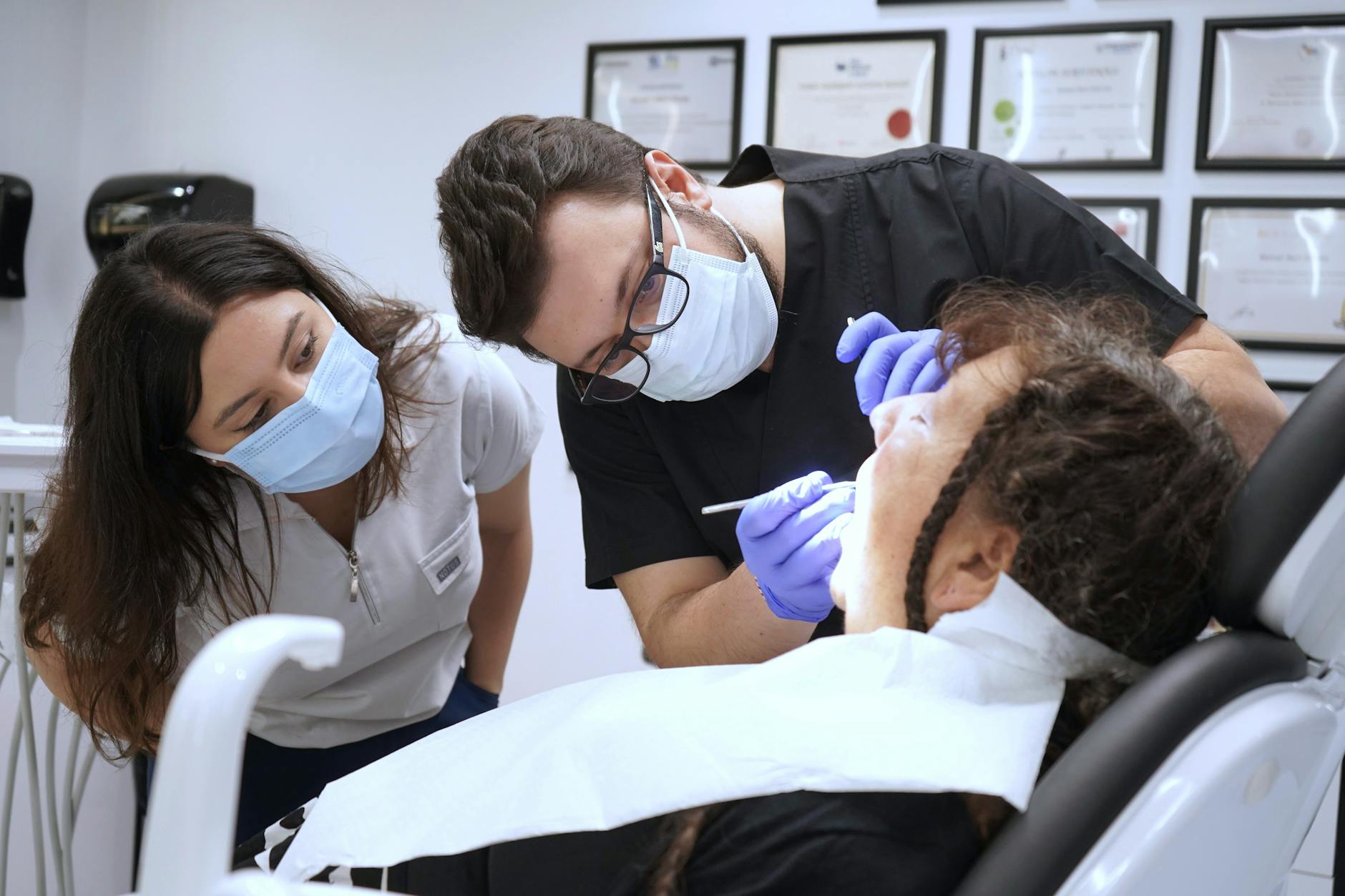Certification – The Cornerstone of Trust in UAE Healthcare
Certification is the invisible contract that reassures patients and families that medical care in the United Arab Emirates stands on proven standards, rigorous oversight, and a commitment to continuous improvement. As healthcare in the UAE expands—driven by an ambitious medical‑tourism agenda, a population that exceeds 9 million, and an economy progressively diversifying beyond hydrocarbons—certification emerges as the single most powerful symbol of quality, safety, and accountability.
—
What is Certification and Why It Matters in the UAE Care Landscape?
Certification is a formal, third‑party endorsement that a product, process, service, or professional meets predefined standards. In the UAE, accreditation bodies collaborate with national authorities to ensure compliance with international benchmarks while tailoring them to local contexts. The importance of certification in the UAE healthcare sector can be distilled into six key dimensions:
1. Quality Assurance – Guarantees that care delivery processes meet stringent criteria for safety and effectiveness.
2. Regulatory Compliance – Demonstrates adherence to laws set by bodies such as the Ministry of Health & Prevention (MOHAP) and Dubai Health Authority (DHA).
3. Patient Confidence – Higher perceived reliability sparks greater patient engagement and loyalty.
4. Competitive Edge – Distinguishes facilities in a crowded market, particularly within the competitive Dubai and Abu Dhabi segments.
5. Risk Management – Reduces liability by aligning with proven risk‑mitigation protocols adopted internationally.
6. Continuous Improvement – Creates a culture of data‑driven adjustments, encouraging ongoing elevation of service standards.
—
Traceability & Quality: The Role of International Standards
International standards—like the Global Health & Medical Accreditation (GHMA), ISO 9001, and ISO 13485—provide a common language for quality management across borders. For UAE institutions, adopting these frameworks has several tangible benefits:
– Transparency – Patients can compare accredited facilities using an internationally recognised alphabetic or numeric rating.
– Interoperability – Ensures seamless collaboration across partnering hospitals, both locally and abroad.
– Financial Incentives – Many insurers accept only accredited care as part of premium calculations or reimbursement policies.
Key UAE regulators such as the MOHAP’s Professional and Clinical Affairs Department routinely reference ISO standards when issuing operating licenses and renewing facility credentials.
—
Key UAE Health Authorities and Their Certification Schemes
| Authority | Primary Focus | Main Certification(s) |
|———–|—————|———————–|
| Ministry of Health & Prevention (MOHAP) | National healthcare oversight | 1. PHCC Accreditation 2. Pharmaceutical Product Certification |
| Dubai Health Authority (DHA) | Dubai‑based licensing & licensing | 1. Medical Facility Accreditation 2. Clinical governance certificates |
| Abu Dhabi Health – Al Ain Region | Regional health governance | 1. Al Ain Regional Accreditation 2. Infection Control programs |
| Dubai Healthcare City (DHCC) | Free‑zone specialist care | 1. DHCC Centre Accreditation 2. Allied Health Certification |
| Dubai Scientific Research Centre (DSRC) | Academic clinical research | 1. Clinical Trial Certification 2. Institutional Review Board approval |
While MOHAP’s nationwide Health Technical Support (HTS) scheme is famed for its robust safety protocols around pharmaceutical approvals, DHA’s Health Care Facilities Accreditation Programme ensures that clinics and hospitals meet the Dubai Healthcare Quality (DHQ) benchmarks.
—
Hospital & Clinic Accreditation: Strengthening Trust Through Global Benchmarks
Internationally Recognised Accreditations
1. Joint Commission International (JCI) – The gold standard for patient safety worldwide. Over 30 UAE hospitals—including Dubai Hospital, Al Zahra, and Cleveland Clinic Abu Dhabi—hold JCI accreditation.
2. The International Hospital Federation (IHF) – Recognises excellence in patient rights and community healthcare.
3. Middle Eastern Accreditation of Hospitals (MEA) – Region‑specific accreditation focusing on Arabic‑speaking patient populations.
UAE‑Specific Accreditation Innovations
– Dubai Health Quality Assurance Programme (DHKSP) – A collaborative effort between DHA and the UAE Authority for Health (UAE-HA), it blends JCI standards with local metrics such as patient satisfaction in Arabic and distinct safety protocols for expatriate communities.
Benefits of Accreditation for UAE Institutions
– Enhanced Patient Outcomes – Accredited centers report a 15‑20% reduction in infection rates and readmission rates.
– Regulatory Faster Approvals – Facilities can expedite licensing renewals by showing proof of compliance.
– International Patient Confidence – Medical tourists arriving from Europe, Asia, and Africa typically seek JCI‑accredited hospitals for complex procedures.
—
Professional Credentialing: Doctors, Nurses, and Allied Health Professionals
Certification for individuals in the UAE is overseen by Professional Licensing Committees under both DHA and MOHAP, often in partnership with continental chartered bodies.
Typical Professional Certifications
| Profession | Primary Credential | Required Body |
|————|——————-|—————|
| Physicians | Board Certification (e.g., American Board of Medical Specialties, ABMS) | MOHAP + specific national medical boards |
| Nurses | Certified Nursing (RN) – DHA, MOHAP, or International Nursing Board | DHA |
| Pharmacists | Certified Pharmacy Technician (CPT) | MOHAP |
| Allied Health (e.g., Physiotherapists, Radiologists) | National Allied Health Accreditation (NAHA) | Dubai Professional Council of Allied Health (DPCAH) |
Career Advancement Checklist for Health Professionals
– 1. Acquire the national license (e.g., “Health Practitioner Registration” from MOHAP).
– 2. Obtain specialty certifications via accredited bodies.
– 3. Undertake continuing education credits annually (mandatory under the Continuous Professional Development (CPD) scheme).
– 4. Validate practice through patient outcome metrics and peer reviews.
These steps ensure professionals remain competitive, especially in high‑volume urban centres where patients demand evidence of expertise and safety.
—
Medical Devices & Pharmaceutical Certification Under MOHAP
Certification of products—especially medical devices and pharmaceuticals—ensures that only compliant, safe items reach patients. MOHAP’s Health Services and Regulatory Authority (HSRA) maintains a public register of registered manufacturers, importers, and distributors. Key regulatory milestones include:
1. Product Registration – Evidence of conformity with ISO 13485 for devices, or US FDA/EMA approval for drugs.
2. Clinical Evaluation – For high‑risk devices, MOHAP requires demonstrable clinical data.
3. Post‑Market Surveillance – Continuous reporting of adverse events via MOHAP’s Adverse Event Reporting System (AERS).
Large Emirati healthcare groups, such as United For Health and AHKA Group, maintain in‐house compliance teams that engage directly with MOHAP to accelerate this pathway.
—
Digital Health and Data Security Certifications
The UAE’s Digital Health Strategy 2025 emphasises secure, interoperable patient data. Certified data systems comply with:
– ISO 27001 – Information security management systems.
– Health‑Information Governance (HIPAA‑style) – Adapted to UAE privacy laws (e.g., UAE Federal Law No. 5 of 2020, Personal Data Protection Law).
– Dubai Electronic Health Records (DEHR) – A certified platform overseening patient histories across all emirates.
Healthcare providers are now expected to provide Zero‑Trust Architecture and adopt Blockchain-based appointment systems—both driven by UAE Federal Law No. 1 of 2022, “Regulation of Healthcare Data.”
—
Choosing the Right Certification: A Checklist for Healthcare Providers
| Step | Description | Reference |
|——|————-|———–|
| 1. Define Scope | Identify services or products needing certification | MOHAP Scope Document |
| 2. Select Standard | Match service with appropriate international or UAE criteria | ISO 9001, JCI, DHQ |
| 3. Conduct Gap Analysis | Compare current processes to certification requirements | Internal audit module |
| 4. Develop Action Plan | Document corrective actions and timelines | Compliance roadmap |
| 5. Submit Application | File with authority (MOHAP, DHA) | Application portal |
| 6. Undergo Inspection | External audit, onsite assessment | Accreditation body |
| 7. Receive Certification | Official seal or digital badge | Issuing authority |
| 8. Maintain Compliance | Continuous improvement & re‑audit | Annual review logic |
By following this structured approach, institutions can minimize risk of delays, reduce redundant work, and ensure a smooth passage through each stage of certification.
—
Case Study: Success Stories of UAE Facilities Post‑Certification
Cleveland Clinic Abu Dhabi – JCI Accreditation (2018)
– Challenge: High-variability patient recovery times for cardiac surgery.
– Action: Implemented JCI’s Baby–Safety framework for all cardiac theatres and re‑trained staff.
– Outcome: 25% reduction in postoperative complications within 12 months; attracted 12% more international referrals.
Dubai Hospital – ISO 9001 Certification (2021)
– Challenge: Manual patient record‑keeping plagued by data errors.
– Action: Integrated an ISO‑aligned Electronic Health Record with embedded quality alerts.
– Outcome: 85% reduction in clerical errors; staff satisfaction scores rose by 30%.
Al Zahra Hospital – DHA Facility Accreditation (2023)
– Challenge: Inefficient lab sample tracking leading to delayed diagnostics.
– Action: Adopted DHA’s Sample Management Protocol and invested in a barcode system.
– Outcome: Turnaround time dropped from 3 hours to 45 minutes; readmission rates fell by 12%.
The common theme across these examples is that certification triggered systematic process overhauls, technology upgrades, and staff empowerment, which collectively enhanced patient outcomes and strengthened reputational capital.
—
Challenges and Future Outlook in the UAE Certification Landscape
1. Workforce Gaps
The rising demand for healthcare services outpaces the supply of certified professionals. The Ministry of Human Resources and Emiratisation (MOHRE) has pledged to bridge this gap by launching dedicated master’s programmes in health management.
2. Rapid Technological Change
Digital health innovations require new certification models. Moore’s Law suggests a need for bi‑annual revision of data security standards, pushing authorities toward agile accreditation frameworks.
3. Global Interoperability
While UAE certifications are robust at a national level, aligning them seamlessly with European or US frameworks is a work in progress, with MOHAP exploring bilateral memoranda of understanding.
4. Cost & Accessibility
Although many certification schemes are free or subsidised for public institutions, private practices often cite high upfront costs as a deterrent. The Dubai Healthcare City (DHCC) has introduced a “Certification Grant” for startups, creating a more level playing field.
Future Trends
– Smart Accreditation – Use of artificial intelligence to automate compliance checklists.
– Patient‑Centred Metrics – Incorporating real‑time patient satisfaction dashboards into certification frameworks.
– Sustainability Standards – Incorporating environmental impact assessments into facility accreditation, aligning with UAE Vision 2021’s sustainability goals.
—
Conclusion
In the UAE, where healthcare excellence is a national priority and the market is saturated with both regional and international providers, certification stands as the definitive trust builder. By aligning with international standards and local regulatory frameworks, hospitals, clinics, professionals, and even digital platforms signal a commitment to patient safety, quality, and continuous improvement.
For patients, certification offers peace of mind—an assurance that the care they receive meets globally recognised benchmarks. For providers, it delivers competitive advantage, regulatory compliance, and a roadmap for ongoing performance enhancement. As the UAE carves its legacy as a leading health‑tourism destination, certification will continue to underpin every successful endeavour, turning the promise of “best care” into a measurable, repeatable reality.









